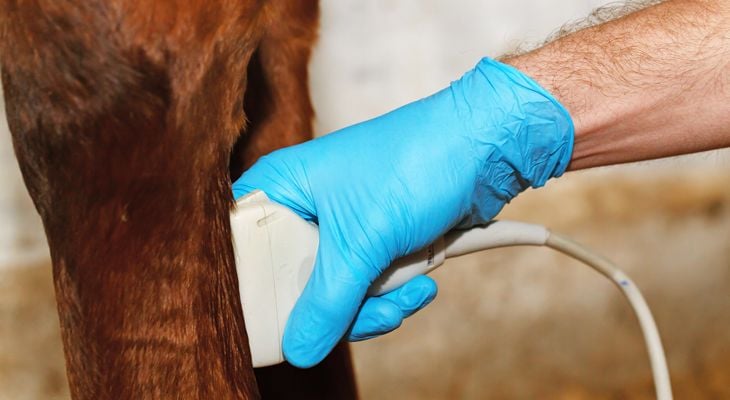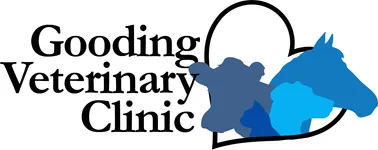
The thyroid gland is part of the endocrine system and consists of two lobes located on the front of a horse’s neck. This gland produces hormones that regulate the body’s metabolism and affect most of the body’s tissues.
When functioning normally, the thyroid is not visible, but certain diseases can cause it to enlarge. Because thyroid hormones play such an important role in the body, conditions that affect the thyroid can have far-reaching consequences on a horse’s health.
Diagnosing Thyroid Conditions
Although some conditions can make the thyroid grow larger (goiter), the size of the thyroid is not always an indication of how well the gland is working. To properly diagnose a thyroid problem, an equine veterinarian will review the horse’s symptoms and medical history and may run certain laboratory tests, such as measuring the level of the following hormones in the body:
- Thyroid hormones (T4 or T3) produced by the thyroid
- Thyrotropin releasing hormone (TRH), which is produced by the pituitary gland and stimulates the thyroid to release hormones
Other tests may be used to diagnose problems with the thyroid, including:
- Imaging tests, such as scintigraphy (which uses small amounts of radiation to see how hard the thyroid is working) or ultrasound (to identify solid growths, such as cysts)
- A biopsy, during which a small piece of tissue is cut out of the thyroid, to help diagnoses cysts, cancer, inflammation or an enlarged thyroid
Hypothyroidism
Hypothyroidism occurs when the thyroid doesn’t produce enough thyroid hormones, leading to a slower metabolism. Symptoms of this condition vary, because the thyroid hormones affect all parts of the body, but can include:
- Lethargy
- Loss of interest in (or an inability to) exercise
- Weight gain without increased appetite
Hypothyroidism is rare in adult horses. Foals, however, may be born with this condition if the pregnant mare had too much or too little iodine in her diet or if she grazed on plants that can cause the thyroid to enlarge.
Treatment for hypothyroidism involves giving the horse synthetic thyroid hormone. This typically involves a lifelong treatment regimen. The horse’s thyroid hormone levels will need to be monitored regularly: usually once or twice a year after the proper dosage has been determined.
Goiter
A goiter is an enlarged thyroid that is not caused by cancer. Horses with goiter often have normal levels of thyroid hormones; although sometimes they will also have hypothyroidism.
The most common reason for a goiter to develop in a horse is lack of iodine in the diet. The thyroid needs this mineral in order to make thyroid hormones. Without enough iodine, the thyroid doesn’t produce enough hormones, which causes the pituitary gland to release more thyroid-stimulating hormone. This causes the thyroid to grow larger.
Other causes of goiter in horses include:
- Foals being born to mares without enough or too much iodine in their diet
- Ingestion of plants that stimulate the growth of a goiter, such as cabbage, kale, rape, soybeans and turnips
Thyroid Tumor
Thyroid tumors occur more often in older horses and certain light-weight breeds. The main types of tumors that can develop in the thyroid of horses include:
- Adenoma. This is the most common type of thyroid tumor in horses, occurring mainly in horses over 16 years old. It is non-cancerous (benign) and usually doesn’t affect how well the thyroid works.
- Adenocarcinoma. These cancerous growths in the thyroid are less common. This type of tumor may affect the functioning of the thyroid. Cancer cells can also spread to other areas of the body.
- Medullary carcinoma. These tumors are less common and may not affect the function of the thyroid; although the size of the tumor can affect the ability of the horse to swallow.
Thyroid tumors may be removed surgically, especially if it affects the functioning of the thyroid gland or restricts the horse’s swallowing. A horse will fare better if surgery is done on only one lobe of the thyroid and the cancer has not spread from the areas (metastasis).
If you think your horse may be suffering from a thyroid condition, contact our office today to schedule an appointment.
